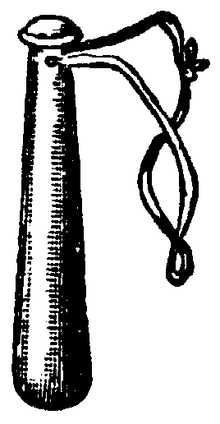A long-time ally of Saddam Hussein, in 1990 Ali Abdullah Saleh backed Saddam Hussein's invasion of Kuwait. After Iraq lost the Gulf War, Yemenis were deported en masse from Kuwait by the restored government.[8]
http://www.cbsnews.com/stories/2011/02/13/501364/main20031680.shtml
Excerpt:
February 13, 2011
Yemenis Renew Protests to Oust Leader
Police, Gov't Supporters Clash With Demonstrators on 3rd Day of Rallies Calling for Reforms, Removal of President Saleh
(AP) SANAA, Yemen - Yemeni police clashed Sunday with anti-government protesters staging a third-consecutive day of demonstrations calling for political reforms and the resignation of President Ali Abdullah Saleh.
Several thousand protesters, many of them university students, tried to reach the central square in the capital of Sanaa, but were pushed back by police using truncheons.
The ouster of Egyptian President Hosni Mubarak after an 18-day uprising has emboldened protesters in Yemen and raised questions about the country's stability and other Western-allied governments in the region. Saleh has been in power for three decades and has tried to defuse the unrest by promising not to run again. His term ends in 2013.
Witnesses said several protesters were injured and 23 were detained by police in Sunday's clashes. They said plainclothes policemen holding daggers and sticks also joined the security forces in driving the protesters back.
The protesters, chanting "people want to overthrow the regime," tried to reach Hada square in downtown.
Demonstrators tried to reach Tahrir Square, or Liberation Square, on Saturday, but security forces pushed them back. Buses ferried ruling party members, equipped with tents, food and water, to the city's main square to help prevent attempts by protesters to gather there.
On Sunday, local officials also provided Qat, leaves Yemenis chew as a stimulant, to plainclothes police and government supporters who spent their overnight in the square, witnesses said.
Police also set barbed wire around the square to prevent protesters from taking over the square.
Complete Coverage: Anger in the Arab World
The anti-government protests started Friday night as thousands of Yemenis took to the street to celebrate the resignation of Mubarak and demand the overthrow of their own president.
The United States finds itself in a delicate position in Yemen, where it is seeking to balance between democratic reforms and stability in a country that has become a key ally in the fight against Islamic militants.
Yemen is the Arab world's most impoverished nation and has become a haven for al Qaeda militants. Critics accuse the government, which has little control outside the capital, of being riddled with corruption. Its main source of income — oil — could run dry in a decade.
Yemen has been the site of anti-U.S. attacks dating back to the 2000 bombing of the USS Cole in Aden harbor, which killed 17 American sailors. Radical U.S.-born cleric Anwar al-Awlaki, thought to be hiding in Yemen, is suspected of having inspired some attacks, including the deadly 2009 shooting rampage at Fort Hood, Texas.
http://en.wikipedia.org/wiki/Ali_Abdullah_Saleh
Excerpt:
[edit] Life and career

Saleh with George W. Bush
Saleh initially took power as a strongman of North Yemen in 1977, after serving as a lieutenant colonel in the army. Yemen's previous president, Ibrahim al-Hamdi, had been assassinated, and Saleh is suspected having played a role in the plot.[7] He was elected the secretary-general of the General People's Congress (GPC) party on August 30, 1982[citation needed] and re-elected president of the Yemen Arab Republic in 1983.[1] This move prompted Freedom House to downgrade their rating of political freedom in Yemen from 5 to 6.
The decline of the Soviet Union severely weakened the status of South Yemen, and, in 1990 the North and South agreed to unify after years of negotiations. The South accepted Saleh as Head of State of the unified country, while Ali Salim al-Beidh served as Head of Government.[7]
A long-time ally of Saddam Hussein, in 1990 Ali Abdullah Saleh backed Saddam Hussein's invasion of Kuwait. After Iraq lost the Gulf War, Yemenis were deported en masse from Kuwait by the restored government.[8]
Saleh became Yemen's first directly elected president in the 1999 presidential election, winning 91.2% of the vote. The only other candidate, Najeeb Qahtan Al-Sha'abi, was the son of Qahtan Muhammad al-Shaabi, a former President of South Yemen. Though a member of Saleh's General People's Congress (GPC) party, Qahtan ran as an independent.[9]
http://en.wikipedia.org/wiki/Baton_(law_enforcement) Second time trying to access, the article had disappeared. ...cal
Baton (law enforcement)
From Wikipedia, the free encyclopedia
"Truncheon" redirects here. For the British submarine, see HMS Truncheon (P353).
"Nightstick" redirects here. For the sludge metal band, see Nightstick (band). For the Transformers character, see Nightstick (Transformers).
A truncheon or baton (also called a cosh, Paddy wacker, billystick, b'tawn, billy club, nightstick, sap, blackjack, stick) is essentially a stick of less than arm's length—usually made of wood, plastic, or metal. They are carried for less lethal self-defense purposes by law-enforcement officers, correctional staff, security-industry employees and (less often) military personnel. Other uses for truncheons and batons include crowd control or the dispersal of belligerent or non-compliant targets.A truncheon or baton may be used to strike, jab, block, bludgeon and aid in the application of armlocks. Sometimes, they also are employed as weapons by criminals and other law-breakers because of their easy concealment. As a consequence, they are illegal for non-authorized civilian use in many jurisdictions around the world. They have a common role to play, too, in the rescuing of trapped individuals—for instance, people caught in blazing cars or buildings—by smashing windows or even doors.

No comments:
Post a Comment